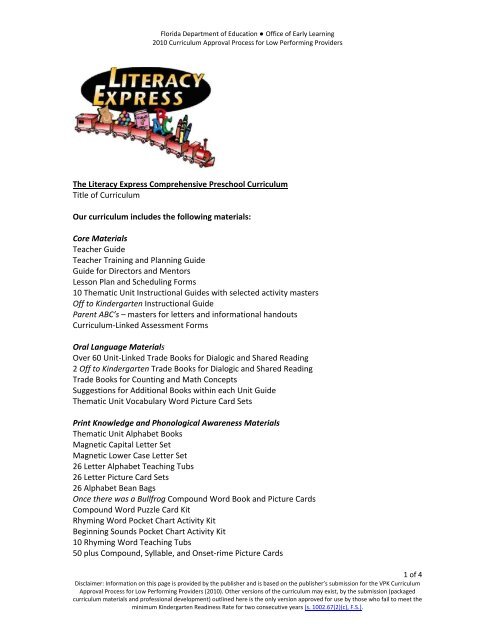Early years assessment is an essential part of a child’s development. It helps identify their strengths and weaknesses, and provides valuable insights for parents and educators. This article will provide a comprehensive guide to early years assessment, covering its importance, types, benefits, and challenges. By understanding the different aspects of early years assessment, parents and educators can work together to ensure that children receive the support they need to reach their full potential.

What is Early Years Assessment?
Early years assessment is the process of gathering information about a child’s development and learning. It is an ongoing process that begins at birth and continues through the early years of school. Early years assessment can be used to identify children who are struggling or who have special needs, and to track their progress over time.
Purposes of Early Years Assessment
- Identify children who are struggling or who have special needs
- Track children’s progress over time
- Plan and provide appropriate interventions and support
- Evaluate the effectiveness of early childhood programs
There are many different types of early years assessments, including:
Types of Early Years Assessment
| Type of Assessment | What it Measures | How it is Conducted |
|---|---|---|
| Developmental Screening | A brief assessment of a child’s overall development | Typically conducted by a pediatrician or other health care provider |
| Diagnostic Assessment | A more in-depth assessment of a child’s specific skills and abilities | Typically conducted by a psychologist or other specialist |
| Progress Monitoring | An ongoing assessment of a child’s progress over time | Typically conducted by a teacher or other early childhood professional |
Early years assessment is an important part of a child’s development. It can help identify children who are struggling or who have special needs, and to track their progress over time. By understanding the different types of early years assessments and their purposes, parents and educators can work together to ensure that children receive the support they need to succeed.
Read more about Early Years Assessment
Read more about Early Math Concepts for Young Learners

The Importance of Early Years Assessment
Early Identification and Intervention
Early years assessment is essential for identifying children who are struggling or who have special needs. By identifying these children early on, we can provide them with the support they need to succeed. For example, a child who is struggling with reading may benefit from extra help from a reading specialist. Or, a child who has a speech delay may benefit from speech therapy.
Read more about Early Childhood Behavioral Management
Tracking Progress Over Time
Early years assessment can also be used to track children’s progress over time. This information can be used to make sure that children are on track to meet their developmental milestones. For example, a child who is not meeting their language milestones may need to be referred for further evaluation.
| Age | Developmental Milestone |
|---|---|
| 0-3 months | Lifts head and chest when lying on tummy |
| 4-6 months | Rolls over from tummy to back |
| 7-9 months | Sits up without support |
Planning for the Future
Early years assessment can also be used to plan for the future. This information can be used to make decisions about a child’s education and care. For example, a child who is identified as gifted may need to be placed in a more challenging academic program. Or, a child who has a disability may need to be provided with special services.
- Understanding Early Years Assessment
- Early Math Concepts for Young Learners
- Importance of Play in Early Learning

Types of Early Years Assessment
There are many different types of early years assessments, each with its own purpose and method of administration. Some of the most common types of early years assessments include:
- Developmental Screening: A brief assessment of a child’s overall development, typically conducted by a pediatrician or other health care provider. Read more about Early Years Assessment
- Diagnostic Assessment: A more in-depth assessment of a child’s specific skills and abilities, typically conducted by a psychologist or other specialist. Read more about Early Math Concepts for Young Learners
- Progress Monitoring: An ongoing assessment of a child’s progress over time, typically conducted by a teacher or other early childhood professional. Read more about Importance of Play in Early Learning
| Type of Assessment | Purpose | Method of Administration |
|---|---|---|
| Developmental Screening | Identify children who may have developmental delays | Typically conducted by a pediatrician or other health care provider |
| Diagnostic Assessment | Determine the specific strengths and weaknesses of a child | Typically conducted by a psychologist or other specialist |
| Progress Monitoring | Track a child’s progress over time | Typically conducted by a teacher or other early childhood professional |
The type of early years assessment that is used will depend on the child’s individual needs. It is important to choose an assessment that is appropriate for the child’s age, developmental level, and suspected areas of need.

Benefits and Challenges of Early Years Assessment
Benefits of Early Years Assessment
Early years assessment offers numerous benefits, including:
- Early identification of developmental delays: Early assessment can help identify children who may have developmental delays, allowing for early intervention and support. Read more about Understanding Early Years Assessment
- Tailored support: Assessment results can inform individualized support plans, ensuring that children receive the specific interventions they need to thrive. Read more about Early Childhood Behavioral Management
- Tracking progress: Ongoing assessment allows educators and parents to track a child’s progress over time, monitoring their development and identifying areas where additional support may be needed. Read more about Importance of Play in Early Learning
| Benefit | Description |
|---|---|
| Early identification of developmental delays | Assessment helps identify children who may have developmental delays, allowing for early intervention and support. |
| Tailored support | Assessment results can inform individualized support plans, ensuring that children receive the specific interventions they need to thrive. |
| Tracking progress | Ongoing assessment allows educators and parents to track a child’s progress over time, monitoring their development and identifying areas where additional support may be needed. |
Challenges of Early Years Assessment
While early years assessment offers significant benefits, it also presents some challenges:
- Cultural bias: Some assessments may be biased towards certain cultural groups, leading to inaccurate or unfair evaluations. Read more about Culturally Responsive Early Education
- Subjectivity: Assessment results can be subjective, depending on the assessor’s interpretation and the child’s performance on a given day. Read more about Understanding Child Development Stages
- Stress: Assessment can be stressful for both children and their families, particularly if the results are unexpected or negative. Read more about Managing Transitions in Early Childhood
“Early years assessment is a valuable tool for understanding a child’s development and providing them with the support they need to succeed. However, it is important to be aware of the potential challenges and to use assessment results in a thoughtful and sensitive manner.”

Final Thought
Early years assessment is a valuable tool for parents and educators to understand a child’s development and provide them with the support they need to succeed. By embracing the benefits of early years assessment and working together, we can help children reach their full potential and thrive in their future endeavors.




